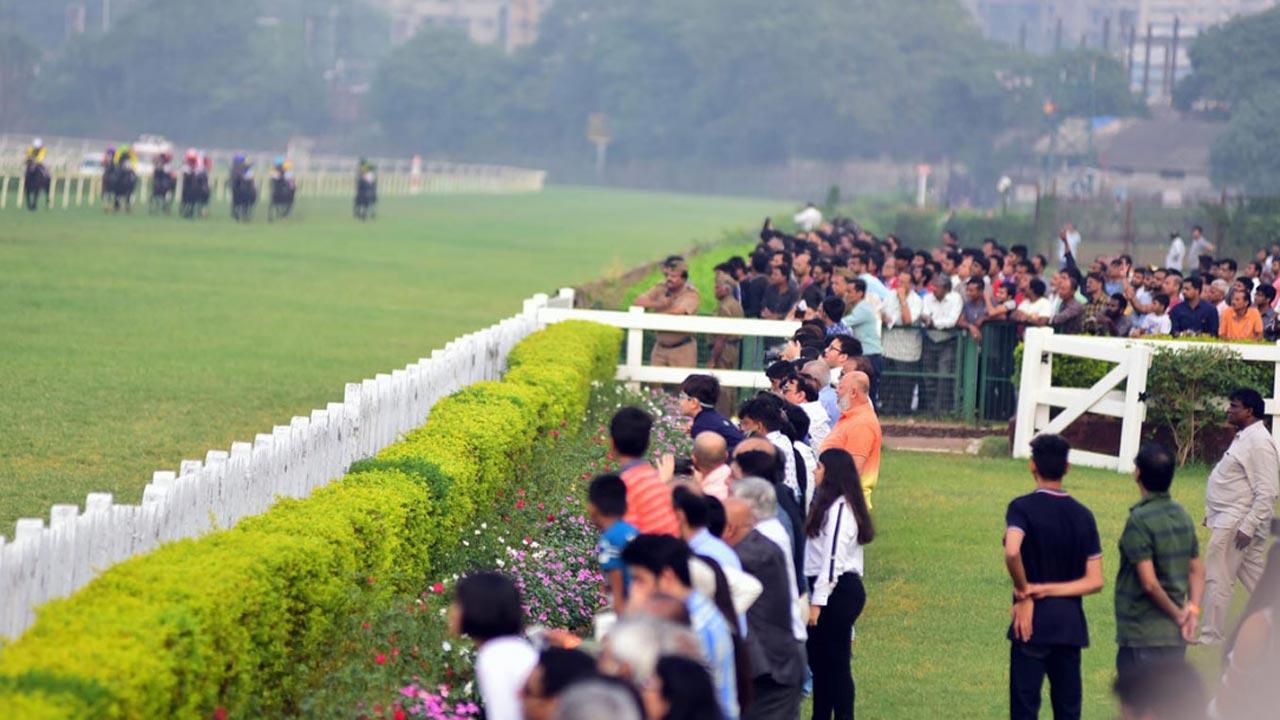Kerala high court's verdict last week opens the door for turf clubs to make a concerted pitch for the abolition of GST at the sin-tax rate (28 per cent)

Mahalaxmi racecourse in Mumbai. Pic/Shadab Khan
Picture this: you’re at Mahalaxmi, a race is being run, and your heart’s racing as you clutch a betting ticket. But before your horse even crosses the finish line, the taxman’s already won—28% of your bet, poof, gone!
ADVERTISEMENT
That’s the GST grinch haunting India’s turf clubs, and it’s high time the Royal Western India Turf Club (RWITC), and its Turf Authorities of India (TAI) pals, stopped sulking and started sprinting to court. The Kerala High Court just tossed us a juicy bone, and with a little Karnataka spice (2021) and some “skill, not chance” swagger (1996), we might finally tame this tax beast.
Renewed hope
Last week the Kerala High Court, in a legal plot twist, kicked out GST rules taxing clubs for serving their own members. Why? Because, in their words, a club and its members are like family—your mom doesn't tax you for cooking and serving dinner! This “mutuality” logic can also be extended to say clubs aren’t some greedy corporation profiting off bets; they’re just middlemen, pooling punters’ money and handing it back (minus a tiny cut).
So, why’s the GST council treating them like casino kingpins? Actually, the Karnataka high court 2021 ruling in favour of BTC (Bangalore Turf Club) accepted this logic--It told the tax folks to chill—GST should only hit the club’s commission (say, Rs 10 on a Rs 100 bet), not the whole darn bet. Imagine the relief: instead of coughing up Rs 28 per Rs 100, clubs could pay Rs 2-3. Punters would flock back, legal betting would boom, and our racecourses might stop looking like ghost towns. But here’s the kicker—the Centre’s been dragging its feet, and, alas, that Karnataka win hasn’t spread nationwide. It’s like winning the Derby but forgetting to collect the trophy!
Now, let’s talk horse sense—literally. The Supreme Court, way back in 1996 (Dr KR Lakshmanan vs. the state of Madras case), said horse racing isn’t some dart-throwing contest with a blindfold on; it’s a game of skill. You’re not just tossing coins—you study form, track conditions, evaluate trainer's skill, jockey's form. Yet, GST lumps us with lotteries and roulette, slapping a 28% “sin tax” on every bet. This skill-versus-chance angle is our ace card, and the Kerala ruling’s mutuality mantra gives it extra muscle.
Game Plan
So, what’s the game plan, TAI? Stop grazing and start galloping! First, round up the posse—RWITC, BTC, Hyderabad, all of you—and hire some legal hotshots. File a big, bold petition in the Supreme Court, waving the Kerala and Karnataka flags. Argue that taxing the whole bet is like charging GST on bank deposits. Like banks, the clubs are only temporary custodians of the pool of money. Demand GST only on commissions, maybe at a friendly 18 per cent, so punters don’t bolt to shady bookies. Oh, and dust off that Supreme Court “skill” ruling—remind the judges we’re more Brain Gym than Las Vegas.
Don’t just bet on courts, though. Knock on the GST Council’s door—politely, with data showing how this tax has tanked revenues (RWITC’s down from Rs 15 crore to Rs 2 crore, ouch!). Pitch a win-win: lower taxes, more legal bets, happier taxmen. Get Maharashtra and Karnataka ministers to cheer you on—they’d love the extra cash from a revived racing scene.The finish line’s in sight, folks. The Kerala ruling’s our starting gun, Karnataka’s our tailwind, and the skill argument’s our rocket fuel. TAI, don’t let this tax keep stealing our thunder—saddle up, hit the courts, and let’s make betting fun again.
(The views expressed in this article are the individual's and dont represent those of the paper)
 Subscribe today by clicking the link and stay updated with the latest news!" Click here!
Subscribe today by clicking the link and stay updated with the latest news!" Click here!







